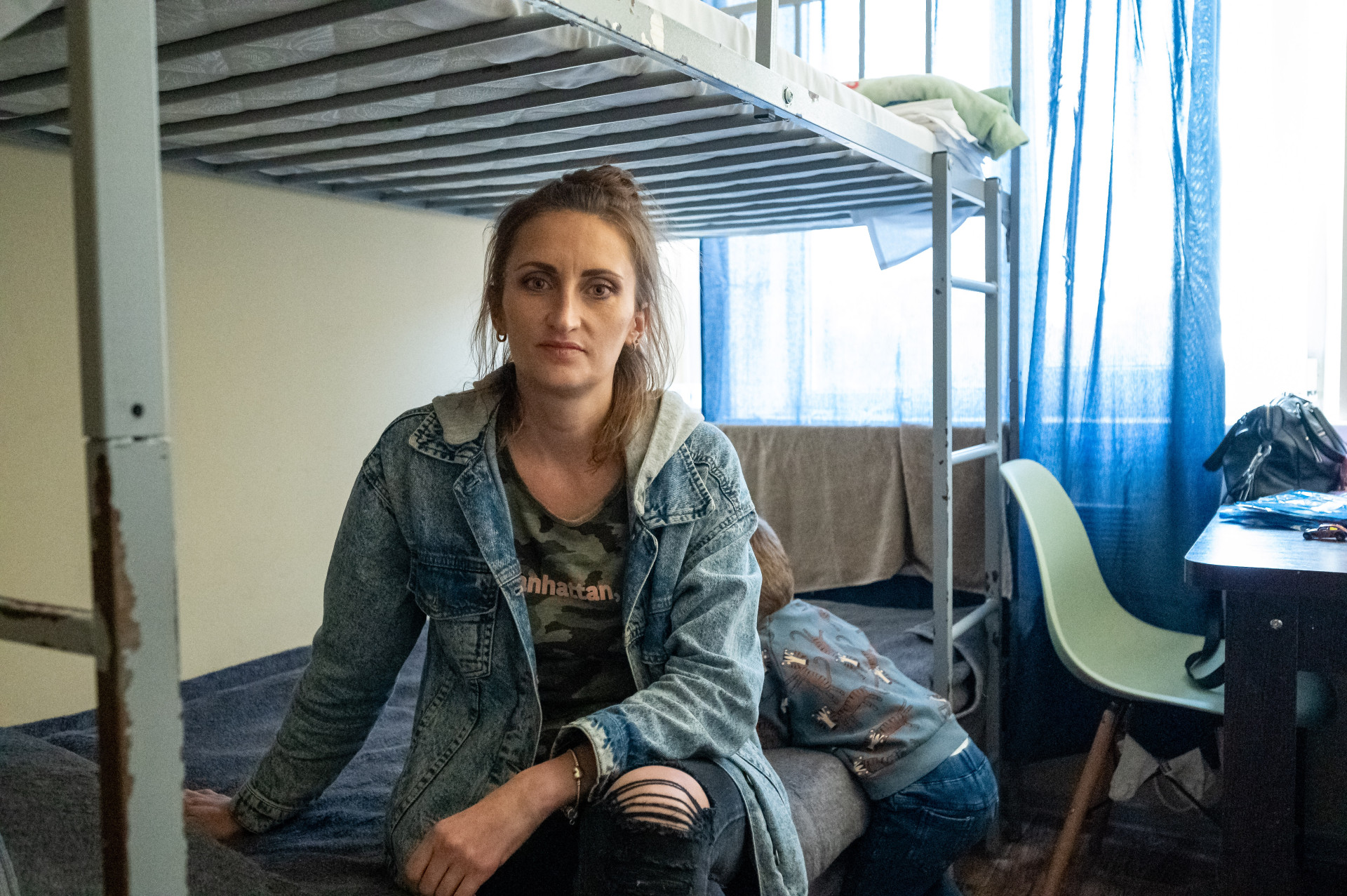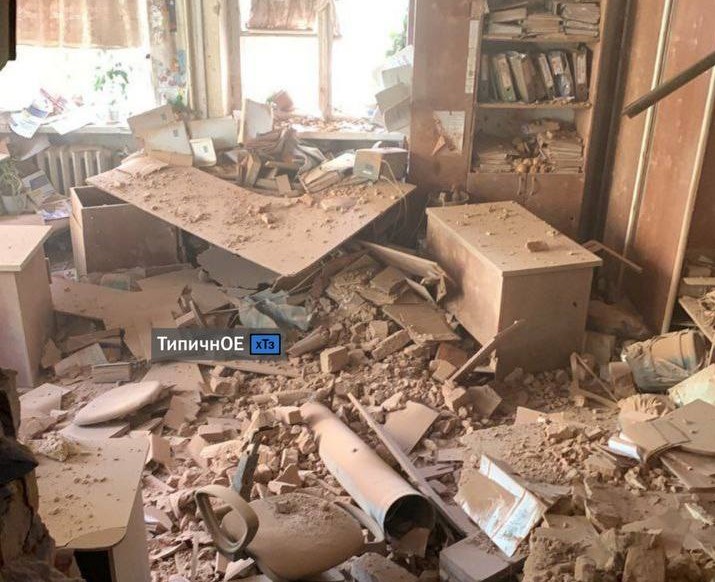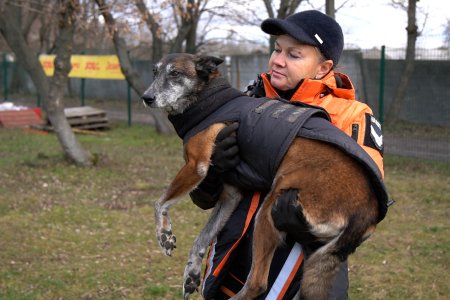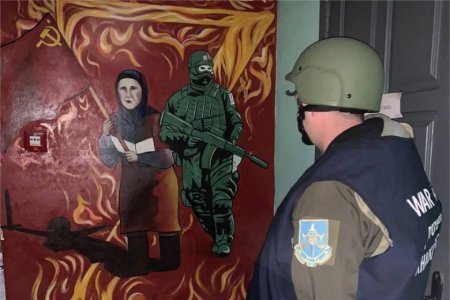First days
We lived in an apartment with our parents. On 24 February, my husband woke me up: “Get up, the war has begun.” I went to the window, and outside everything was on fire, everything was crimson. It was Saltivka that was burning, and it was about five in the morning. It seemed that the whole city was on fire, but in fact, only the eastern outskirts. Our house is solid, with meter-high walls, so I didn’t hear the first explosions. But then it became louder and louder.
We looked out the window, and all the cars were moving towards the exit from Kharkiv towards the Kyiv highway. They went one way, and no one returned. My husband said that we should get ready, too. But my dad thought differently: “No, you are imagining things. Well, where should we go? No one will hit the city.” We wanted to go, but Dad said we should stay. And we stayed. My father belongs to the old Soviet school; he is 76 and the head of the family. He made a decision, and everyone obeyed him.
I thought Dad knew better, that the Russians wouldn’t hit civilians and destroy our homes. We believed him, but he was wrong.
We have a car, but the ground near the garage froze in winter, and we could not open the gate. Therefore, we could not use our car. For several days in a row, I looked for volunteers, and it turned out that many people could take us out. However, we remained in the city.
At first, I didn’t believe there would be a war. The war in our time? Something incredible. And then, when I learned about how many troops were at the borders and the entire war scale, I realized that this would not end so quickly. Everyone was talking about three days if we survived. We survived for three days, but then it became clear that all this would last for a long time.

In the basement
The first few days, we spent the night in the apartment. But soon, we began to go down to the basement and spent the entire day there. We lived in an old house, and the basement was like a bomb shelter. All the entrances had exits; we could exit in several ways. Our basement seemed safe enough. There was no light, only candles. As night fell, it became very cold, drafts everywhere. We brought carpets to provide some insulation. That’s how we lived.
My parents cooked the food in the apartment. During the whole time, they went down to the basement once. During the day, I had to go outside all the time.
While walking, you could often come under fire. I didn’t know whether projectiles were coming or going, but I had to run from building to building.
I left the child with my mother and ran around, looking for groceries or standing in store lines. Flour quickly disappeared, and bread became scarce. To buy something, you had to go to many stores. But it’s good that the stores were open during this period.
One day, I needed to go to the city center to visit my uncle. I went to the center for the first time and saw the ruins. At the same time, our part of the city miraculously remained unharmed. Later, I went with a friend by car to the KhTZ [Kharkiv Traktor Plant] district, where I saw burnt cars and destroyed buildings.

We talked in the basement and discussed about what to do next. We began to talk a lot with our neighbors because previously, we limited ourselves to only best wishes on holidays. We had the Internet and were constantly online, watching where the shelling took place. Telegram channels wrote about this regularly. The mood was different. Our neighbor said he was a shaman and knew everything would end soon. But we no longer doubted that this would last for a long time.
It’s time to go
It didn’t take long before my father finally admitted he was wrong. Dad didn’t feel well then; he was sick. He said he wasn’t going anywhere. But in the end, my mother persuaded him. It was also hard for my son to endure living in the basement; you can’t explain to a child why we were sitting there in the dark and damp. So, we started thinking about how to get out. At first, we wanted to go by train, but everyone said we would have to stand, so this was not an option. Finally, on 11 March, a friend took us to the station. First, the parents left.
The city was already empty, and the station had no crowd. The town seemed to have died out, and all the people were hiding somewhere or had already left.
We were fortunate because the train was late and then delayed in Kharkiv. We were still packing our things while my parents were already on the train. But we made it. My parents traveled 20 hours to Lviv sitting down, and we were provided with a separate sleeper compartment as a family with a child. The train was not full, and there were enough empty seats. We were going to Lviv to absolutely nowhere. In Lviv, we lived in a hostel and later with a volunteer who hosted displaced people for free.



